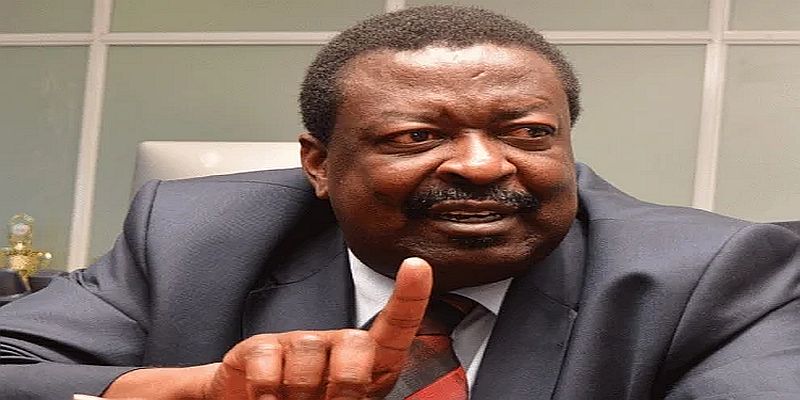Review of The African Union’s Governance Peace and Security Frameworks

African leaders have long recognized that accelerating the continent’s political and socio-economic integration must go hand in hand with the promotion of peace, security, and stability. It is for this reason that we established the Peace and Security Council (PSC), the Continental Early Warning System, the Standby Force and the Panel of the Wise to constitute an African Peace and Security Architecture (APSA) to address persistent challenges of armed conflicts in Africa. Indeed, the scourge of conflicts, primarily intra-state and, at times, inter-state, remains the leading cause of Africa’s socio-economic stagnation and the greatest source of suffering for its people.
The AU Peace Architecture is thus entrusted with core responsibilities including, anticipating and preventing disputes, undertaking peacemaking and peacebuilding, authorizing peace support operations, and harmonizing efforts at both regional and continental levels to effectively combat terrorism. The AU Peace frameworks were never designed to be standalone stallions for peace but were intended to act in cooperative fashion while also taking advantage of the capacities of regional economic blocks and non-state actors to secure peace. It was envisioned that the interactions between these decisional nodes happening at different levels and scales would yield a polycentric peace profile that would respond effectively, alone and as a collective, to the multiplicity and complexity of conflicts.
Unfortunately, the frameworks we established have failed to evolve fully to deliver their full potential. As a result, we are struggling to keep pace with the growing multiplicity and complexity of today’s conflict and security challenges. Our efforts, regrettably, remain fragmented, uncoordinated, competitive and underfunded. It is for this reason that the review of the African Peace and Security Architecture has been placed at the front and centre of the reform agenda.
The security scenario is made murkier by a global arena that is marked by intense geopolitical tensions and major power competition. Multilateralism is under unprecedented strain aggravated by intensified geo-strategic competition, deepening inequality, state fragility and an increasingly complex set of threats and challenges.
Within this context, Africa is navigating a series of complex and interlinked challenges. Several states are facing a crisis of legitimacy amid a difficult post-pandemic recovery, the debt crisis, fiscal pressures, climate change, increasing inequality.
We are witnessing increasing political instrumentalization and manipulation of Africa’s youth, the majority of whom face unemployment. Many of these youths, with access to digital technologies, are increasingly being mobilized in ways that undermine existing democratic systems. Moreover, the rapid spread of populist ‘sovereignty’ narratives, as evident in the Sahel, coupled with calls from some quarters for military takeovers, risks gaining wider traction across other parts of the continent.
West Africa has experienced both civilian and military challenges to constitutional order, compounded by deep-seated and rapidly expanding terrorism and insecurity. The region is also witnessing a fundamental rupture in regional cooperation and a strain on long-standing ECOWAS integration arrangements.
The Horn of Africa too has entered a challenging period with the war in The Sudan, protracted conflict in South Sudan, and a complex security transition in Somalia. Sharp geo-strategic competition, both around the Red Sea and within the wider global arena, is increasingly shaping dynamics in the region. In the Great Lakes, the complex war economy in eastern DRC remains at the heart of the long-standing crisis, compounded by rising inter-state tensions and intensifying geo-strategic rivalries.
To compound the situation of Africa’s security landscape, the continent has, in recent years, regrettably become the global epicentre of terrorism. Terrorist activity has expanded dramatically from the Sahel to the coastal states, while persisting in the DRC, Mozambique, the Lake Chad Basin, and Somalia. Weakening political systems and the emergence of governance vacuums have created fertile ground for terrorists and criminal networks to expand their influence, often including exploiting longstanding grievances.
This is a defining moment for our continent. It is evident that the existing frameworks in their current configuration are not adequate and effective to address today’s complex dynamics and challenges. This underscores the urgent need to reform and strengthen Africa’s peace and security architecture.
The AU’s presence in regional hotspots remains weak, less coordinated and under-resourced. The AU’s network of Special Envoys and High Representatives is under-utilized and is probably in need of a reset in certain cases. Strengthening the performance and effectiveness of AU peace support operations is a strategic imperative, given the complex and interconnected nature of threats to collective peace and security. The fight against terrorism on our continent remains fragmented, reactive, not effectively coordinated and inadequately resourced. Developing a comprehensive Plan of Action for countering terrorism in Africa as envisioned in the 2022 Malabo Declaration, cannot wait any longer.
Despite the foregoing challenges, the last two decades have provided veritable lessons which we must harness in the search for a more robust peace and security arrangement. I am confident that this meeting and this esteemed panel has what it takes to reimagine a more effective framework.
In the past, we have witnessed assessments and reviews of previous AU reform initiatives that revealed a rich catalogue of recommendations and proposals. Yet, many of these have remained unimplemented due to limited stakeholder buy-in, weak monitoring and evaluation, and, most critically, the lack of a structured implementation process within the Union. I believe that the review of the AU’s Governance, Peace and Security Frameworks that we are undertaking now will not be allowed to fall victim of these shortcomings.
By H.E Excellency Dr. Musalia Mudavadi, E.G.H, Prime Cabinet Secretary and Cabinet Secretary for Foreign and Diaspora Affairs, Kenya
